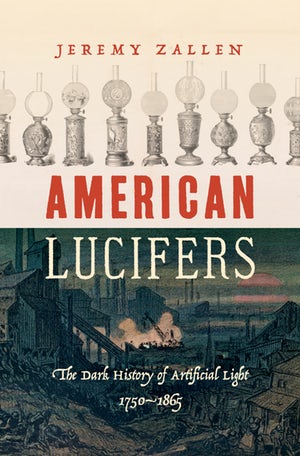Jeremy Zallen, Assistant Professor history at Lafayette College (USA), discussed his new book American Lucifers: The Dark History of Artificial Light, 1750-1865 in our Greenhouse environmental humanities online book talk series on Monday, 6 April at 15:00 (3pm CET).
The myth of light and progress has blinded us. In our electric world, we are everywhere surrounded by effortlessly glowing lights that simply exist, as they should, seemingly clear and comforting proof that human genius means the present will always be better than the past, and the future better still. At best, this is half the story. At worst, it is a lie.
From whale oil to kerosene, from the colonial period to the end of the U.S. Civil War, modern, industrial lights brought wonderful improvements and incredible wealth to some. But for most workers, free and unfree, human and nonhuman, these lights were catastrophes. This book tells their stories. The surprisingly violent struggle to produce, control, and consume the changing means of illumination over the eighteenth and nineteenth centuries transformed slavery, industrial capitalism, and urban families in profound, often hidden ways. Only by taking the lives of whalers and enslaved turpentine makers, match-manufacturing children and coal miners, night-working seamstresses and the streetlamp-lit poor–those American lucifers–as seriously as those of inventors and businessmen can the full significance of the revolution of artificial light be understood.
